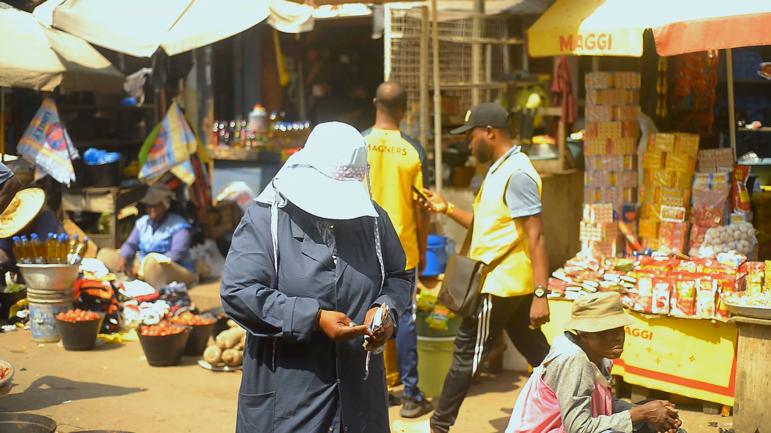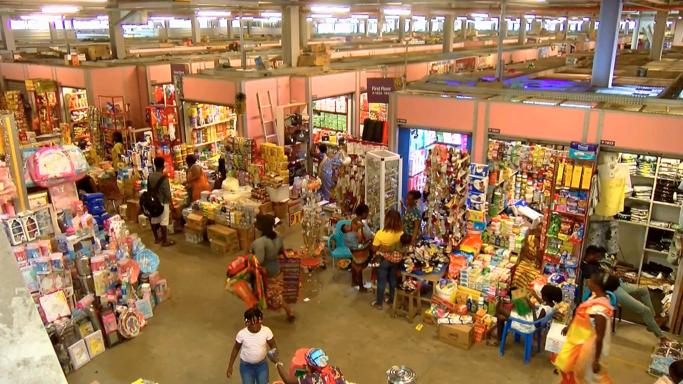Some retailers of consumer goods in Kumasi claim they have little to do with calls for a reduction in prices of goods on the market.
They say importers, suppliers and manufacturers are to blame for maintaining old and high prices.
Consumers have anticipated the appreciation of the cedi against major international currencies and a reduction in fuel prices will lead to a price reduction in goods.
The Ghana cedi has cumulatively gained approximately 33.6% value against the US dollar in December.

Brent crude has fallen below $80 for the first time since January, resulting in a reduction in fuel prices at the local pump, and subsequently, affecting a 15.7 per cent reduction in transportation fares.
These factors are seeming determiners of the prices of goods and services for traders and the Ghana business community.
However, traders have declined calls by President Akufo-Addo, and regulatory bodies like the Ghana Union of Traders Association to reduce the prices of goods and services to reflect the new reality.
Akwasi Agyeman, a wholesaler of provisions in Kumasi, laments he cannot reduce the prices of his goods because suppliers are operating with old prices.
“Reducing the price of a bag of rice at ¢400 will reflect in how I would sell mine. Whilst they haven't done that, traders cannot.
"Until the wholesalers change the prices, including that of old and new stock, the price of goods remains the same,” he said.

Nana Adwoa Botchwey, a retailer of groceries, says reducing the prices of her goods will put her out of business.
“Reducing the price would be very difficult. None of the items sold has been reduced. Suppliers supply the items on credit, if it is sold at ¢50,000, reducing it to ¢40,000, would leave me in debt. Let us blame those who manufacture, import, and supply the goods.
"They increased prices at the wholesale offices when the dollar appreciated, and they are refusing to do so now. It is not our fault,” she lamented.
Maa Kisiwaa says although she has slashed the prices of some of her items, she still has to deal with other high living expenses.
She says patronage has also been affected, as patrons are willing to buy only less expensive items.
“As a Christian, I have sacrificed and reduced a gallon of oil from ¢70 to ¢55. With that, I use all my money to pay the rental fee for this shop.
"I don't charge exorbitant prices, but I can't also run at a loss. Buyers come and refuse to buy because old items are being sold at old prices. They ask for the price often but buy from where it is cheaper,” she said.
Latest Stories
-
Bawumia’s music streaming app or Mahama’s pay-per-view TV channel?
3 mins -
Karpowership Ghana empowers 40 Takoradi Technical University students with scholarship
5 mins -
We expect significant reduction in prices of petroleum products in coming weeks – CEO AOMC
19 mins -
Betway Africa offers once-in-a-lifetime ‘Play-on-the-Pitch’ experience at Emirates Stadium
28 mins -
I coined the term ‘hype man’ in Ghana – Merqury Quaye
33 mins -
Vasseur questions ‘strange momentum’ of Formula One race director change
55 mins -
“I am disappointed in Kojo Manuel” – Merqury Quaye on “no tie” comment
55 mins -
Nana Kwame Bediako; The beacon of unity
58 mins -
Western Region: NDC youth wing embarks on phase 2 of ‘retail campaign’
1 hour -
Action Chapel International holds annual Impact Convention in November
1 hour -
Jana Foundation urges young women to take up leadership roles
1 hour -
All set for Joy FM Prayer Summit for Peace 2024
2 hours -
Managing Prediabetes with the Help of a Dietitian
2 hours -
Joy FM listeners criticise Achiase Commanding Officer’s election comment
2 hours -
Legal Aid Commission employees threaten strike over poor working conditions
2 hours

